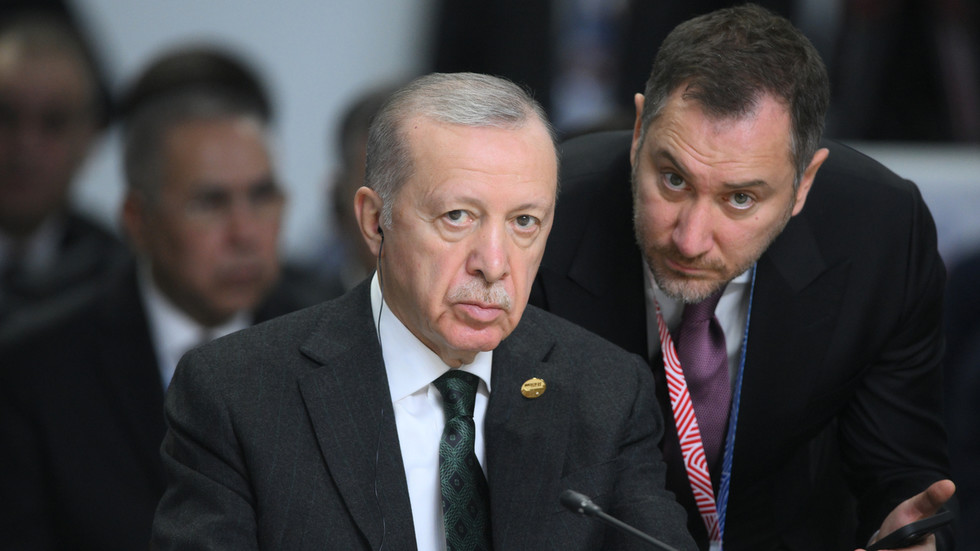Turkish President Recep Tayyip Erdogan has actively participated in the BRICS summit held in Kazan, Russia, demonstrating Türkiye’s commitment to fostering deeper connections within this emerging coalition of major economies. Although Türkiye has not yet gained membership, Erdogan’s attendance comes on the heels of Ankara’s formal application to join the group, submitted just a month prior. During his address at the 16th annual leaders’ summit, Erdogan articulated Türkiye’s ambitions to enhance its cooperation with BRICS, highlighting the group’s potential role in shaping a more equitable global order. He underscored the relevance of BRICS as a platform amid rising socio-economic instability and shifts in global power dynamics, arguing for a need to reassess and adapt international frameworks established post-World War II.
Erdogan’s remarks underscored the urgency for BRICS nations to cultivate stronger ties, invoking a spirit of mutual respect and collaboration that can address contemporary issues effectively. He expressed a desire to engage in constructive dialogues with BRICS leaders, pointing to Türkiye’s existing relationships with member countries as a foundation for future cooperation. The Turkish leader emphasized the importance of unity among nations in addressing shared challenges, arguing that countries can find practical solutions through collaborative efforts in multilateral fora. TASS quoted him, stating that Türkiye is committed to working together with friends on such platforms, reinforcing the notion that collective action is crucial in today’s interconnected world.
At the summit, Erdogan articulated that enhancing collaboration within BRICS could pave the way for fair development and global security solutions. He mentioned Türkiye’s existing active involvement in various international organizations, such as the G20, hinting at his country’s established role in global governance. His comments reflect a broader strategy to position Türkiye as a pivotal player in international economic governance and a proponent of a multipolar world in which emerging economies can exert a more substantial influence. This ambition aligns with Türkiye’s desire to diversify its diplomatic and economic partnerships beyond its historical alliances and commitments.
In response to Türkiye’s aspirations to join BRICS, NATO Secretary General Mark Rutte stated that Turkey’s pursuit of BRICS membership is a sovereign decision. Rutte acknowledged that debates concerning Turkey’s membership in various international organizations remain inevitable but emphasized Turkey’s critical role within NATO. This recognition of Turkey’s strategic significance amplifies Erdogan’s narrative of Türkiye as an influential state capable of contributing to various international coalitions while also reinforcing its identity as a key ally in defense fora.
The backdrop of Türkiye’s increasing engagement with BRICS and other platforms stems partially from frustrations with the slowed accession process to the European Union. Turkish officials have cited this stagnation as a catalyst for seeking alternative partnerships, underscoring a pragmatic shift in Turkish foreign policy. By eyeing membership in BRICS, Türkiye is not only expanding its geopolitical horizons but also aligning itself with a coalition that could offer new avenues for economic collaboration, diversification of trade, and potential investment opportunities from rapidly growing economies.
In summary, Erdogan’s involvement at the BRICS summit reflects Türkiye’s ambition to deepen cooperation with emerging economies in response to contemporary global challenges. His calls for multilateral dialogue and partnerships signal a growing recognition of the limitations imposed by longstanding international structures. While navigating its ambitions within BRICS, Türkiye also grapples with its existing commitments to NATO and the EU, seeking to redefine its role in a rapidly changing global landscape. By pursuing membership in BRICS and other economic platforms, Türkiye aims to enhance its influence on global issues, establish equitable economic ties, and ensure its relevance in a multipolar world.

